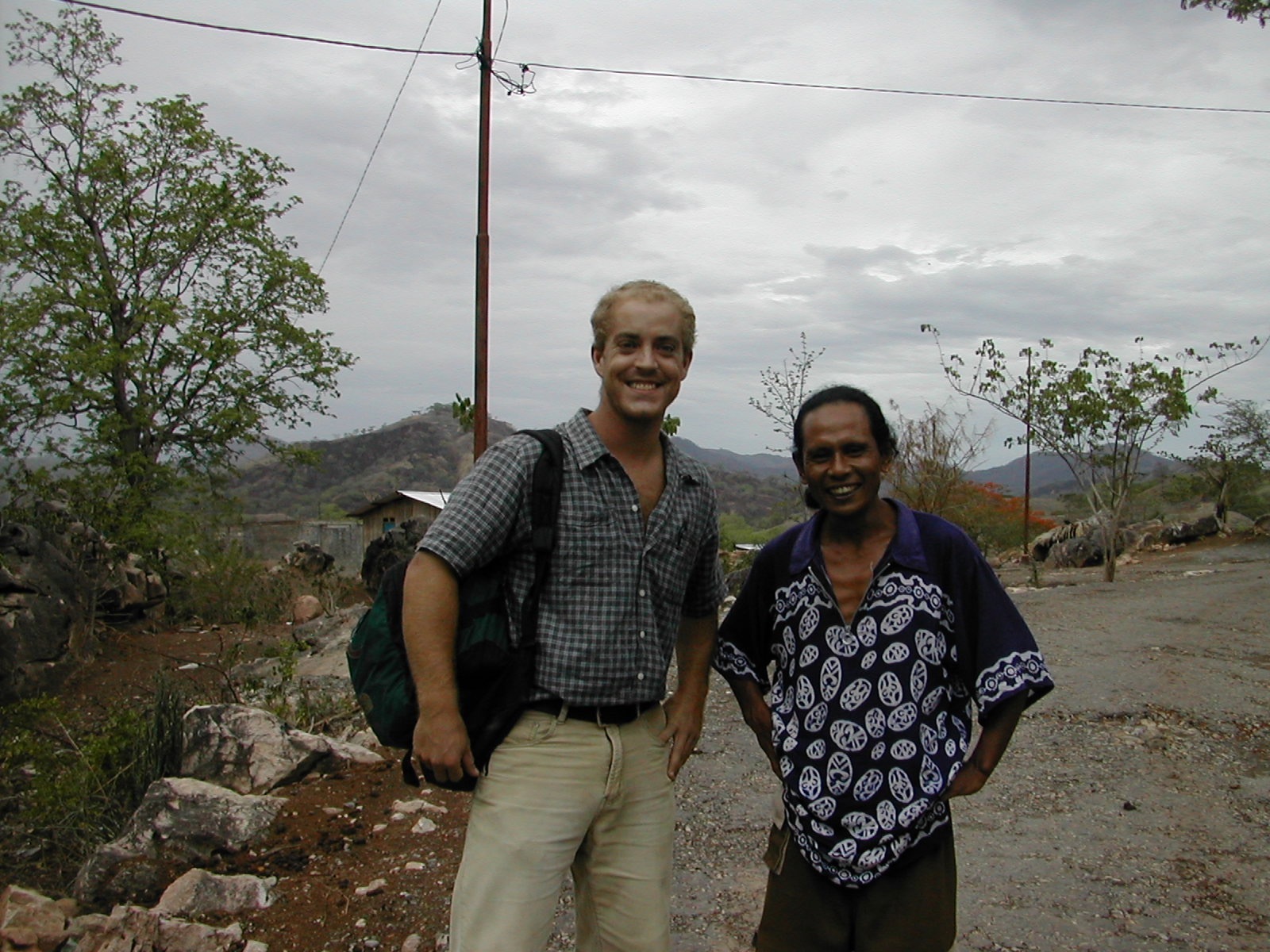My experience in East Timor taught me how Volunteers participate in peacebuilding
by Dan Baker

NPCA President Dan Baker in 2003 with his local counterpart Lito, one year after independence in Timor-Leste
Peace Corps has played a significant yet often unrecognized role in global peacebuilding, the focus of this edition of WorldView. Current conflicts around the world, especially those occurring in countries where many of us have served, are heartbreaking to follow and devastating to our families, counterparts, and communities. At NPCA, our unequivocal goal is to help counter the forces that drive conflict by supporting the deployment of greater numbers of Peace Corps Volunteers to serve (safely) in developing countries where war has existed in the past and will likely exist again. And, of course, we continue to support the valiant efforts of the many Returned Peace Corps Volunteers and NPCA affiliate groups doing the work of peacebuilding at home and around the world.
All RPCVs have contributed to Peace Corps’ mission of promoting peace and friendship, primarily through the invaluable soft diplomacy catalyzed by personal relationships based on trust, cultural exchange, and shared experience. There are now many ways for Americans to serve abroad, but Peace Corps stands alone in its contributions to peace and understanding thanks to its unique Volunteer assignments created by dedicated field staff.
I often recall my personal experience of working in communities where the prospect of peace was tenuous, including my one-year assignment in 2003 as a New Country Entry Volunteer in Timor-Leste. This period marked a critical juncture in Timorese history, as the country transitioned from decades of conflict with Indonesia, which had occupied Timor since 1975, into an independent nation.
Arriving shortly after many of the worst atrocities of the Timorese independence struggle took place, I realize now how our engagement there underscored the significant role of Peace Corps in post-conflict environments.
In the wake of conflict, societies often grapple with feelings of isolation. Our presence represented a bridge connecting Timor to the wider global community. This was not just about the work we did; it was about the message we sent—that the world was watching and willing to work hand in hand to empower a brave new nation.
Peace Corps has played a significant yet often unrecognized role in global peacebuilding
In Timor, I worked on a variety of community development projects that contributed to the nation’s rebuilding process. These ranged from education to public health, and even infrastructure development. In a country working tirelessly to shape its first institutions, these efforts were crucial—but no contribution was more important at the time than building friendships.
To be fair, the impact of a single American in a small Timorese village on greater peacebuilding efforts is hard to measure. My counterpart Lito often told me that during the Indonesian occupation, many people in Laleia moved to remote mountain areas, where airdrops of food and supplies arrived in USAID packaging emblazoned with the American flag. These provisions provided hope and a better chance of survival and let displaced people and fighters know that they were not alone.
Building relationships with the people in my community, sharing their language, and listening to their stories was a privilege. It taught me the true value of peace and the strength of the human spirit in the face of adversity. The resilience and hope I encountered were incredibly inspiring.
Beyond the legacy Volunteers leave behind in their communities and the work we do to bring the world home, we should not forget the role Peace Corps plays in creating future professional peacebuilders. My time in Bolivia and Timor-Leste in my mid-20s was a period of immense personal growth. Similar Volunteer experiences around the world hone individuals’ skills in diplomacy, problem-solving, and resilience, making countless diplomats and development workers more effective in their work.
I often think back to one evening in March 2003, while listening over shortwave radio to BBC news reports of the first bombs falling on Baghdad, half a world away. It was impossible not to notice the familiarity with which my family and neighbors responded to the news. It was more impossible still to answer their questions about why my country would deliberately wreak that kind of devastation on another. But I was
the American they knew, and despite my inability to explain, we mourned the loss of innocent lives together. I hope that my time with them will be the story of America they remember best.
Dan Baker (Bolivia 1999–2002), (Timor Leste 2002–2003) is President and CEO of National Peace Corps Association
